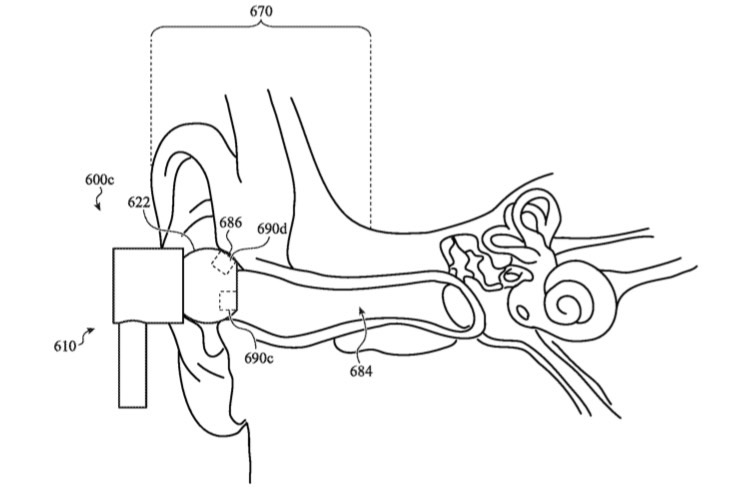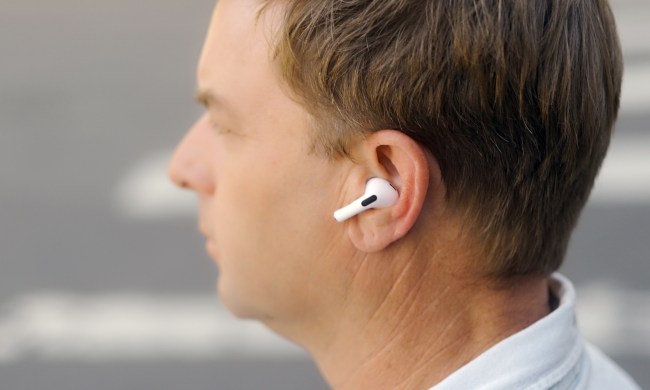A newly granted patent spotted by PatentlyApple suggests that a future version of Apple’s AirPods or AirPods Pro could be controlled through a series of gestures, none of which would involve touching the earbuds themselves. U.S. patent No. US010873798, titled “Detecting Through-Body Inputs At A Wearable Audio Device,” describes in detail the ways in which a few extra sensors embedded within a set of true wireless earbuds could be used to detect signals that originate within the wearer’s body.
These signals could be almost any kind of movement that someone can generate with parts of their body. Taps, swipes, or presses could be done with a finger placed against a forearm or a cheek. But these gestures aren’t limited to what we can do with our limbs. The patent also suggests that the clicking of teeth or the tongue, or even subvocalizations, could ultimately be used to control the various features of the true wireless earbuds.
Want to raise the volume? An upward swipe on your cheek would do it and a downward swipe would lower it. Want to skip forward a track? Tap the side of your head twice.
Apple’s idea for the system is deceptively simple. Two sensors, placed in such a way that they can send and detect signals through the body (say, by contacting parts of an ear canal), could not only detect that you were tapping your own body but also determine where those taps came from. Depending on how accurate the system is, the implications are profound: Our bodies could become the only input device we need to control any device to which our earbuds are connected.
Smartphones, tablets, and laptops are the obvious choices, but why stop there? Apple’s HomeKit system is designed to create a connected smart home ecosystem. Currently, Siri sits at the center of that ecosystem, but this patent opens the possibility of controlling every smart device in your home with your body, no words required.
Even if this larger world of body-controlled devices is still years away, Apple’s patent could be a boon for those with physical disabilities. It’s easy to forget how hard it would be to control your technology if you didn’t have the use of your hands or your voice. By sensing virtually any movements someone can make with their bodies, Apple’s patent could give quadriplegics an entirely new way of interacting with their world.





